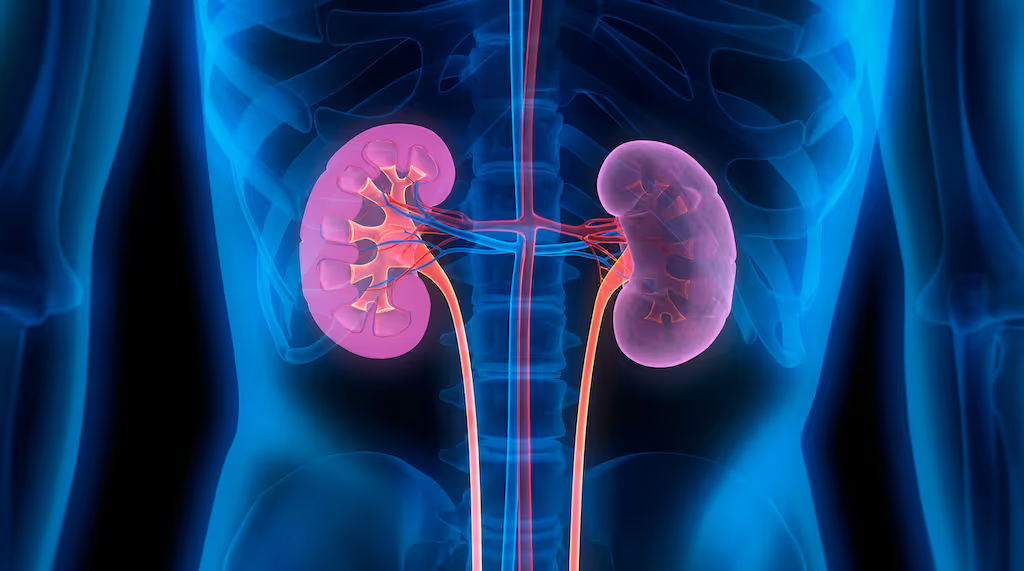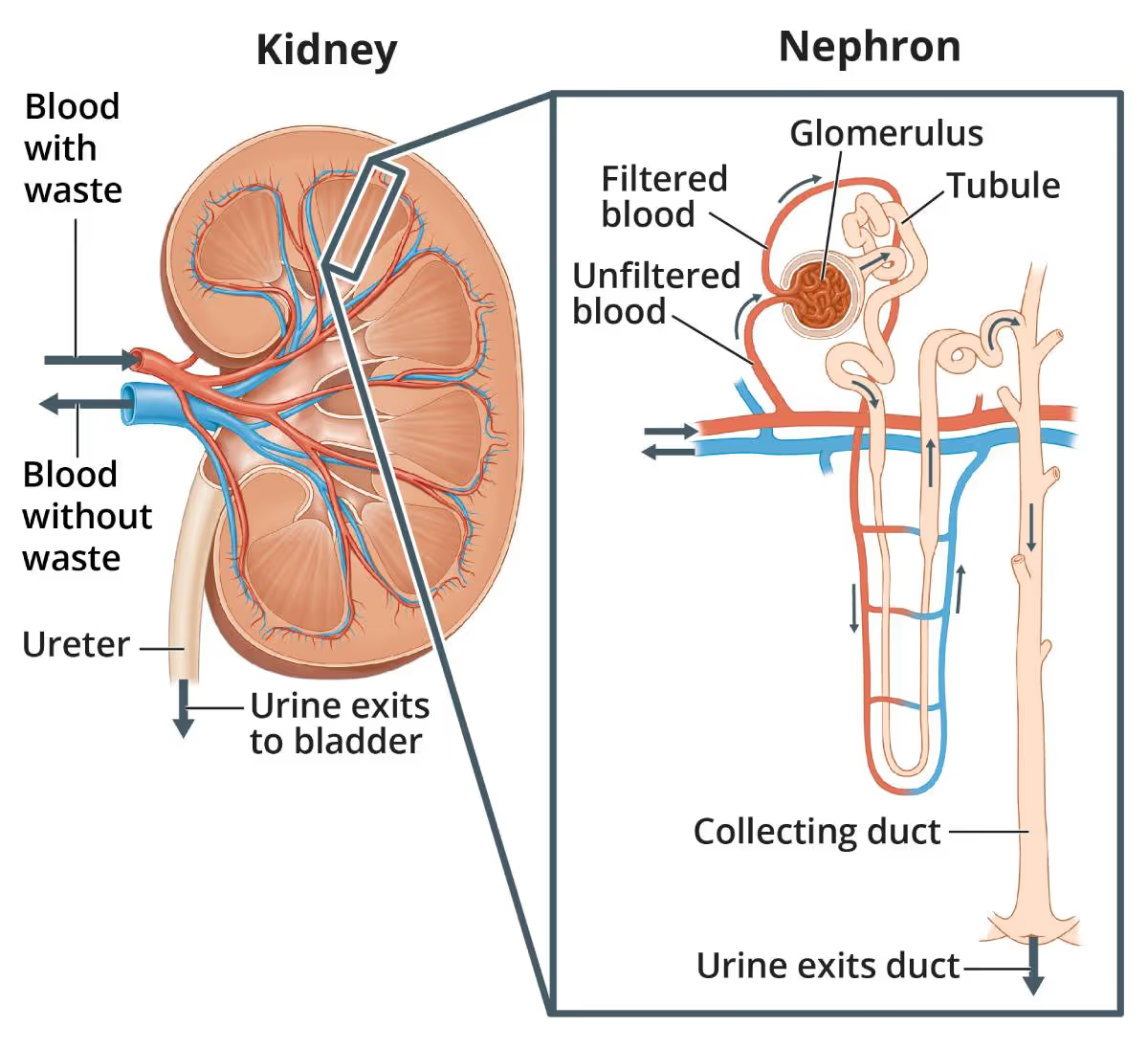Your personal AI assistant for IgAN



.avif)

What is IgA nephropathy (IgAN)?
IgA nephropathy (IgAN), also known as Berger's disease, is a chronic autoimmune kidney disease where IgA (immunoglobulin A) antibodies deposit in the glomeruli (the kidney’s filtering units), causing inflammation and progressive damage
The disease occurs when an abnormal form of an antibody called Immunoglobulin A (IgA) builds up in the glomeruli. This buildup triggers inflammation that, over time, can damage the kidney's ability to filter waste, water, and electrolytes from the blood.
The exact cause is unknown, but contributing factors include:
-Immune dysregulation: Overproduction of poorly glycosylated IgA1
-Autoimmunity: Formation of autoantibodies against aberrant IgA1
-Environmental triggers: Such as respiratory or gastrointestinal infections, dietary antigens or mucosal immune system abnormalities
-Genetic predisposition: About 5-10% of cases are familial, suggesting that certain genes increase susceptibility.
It affects approximately 2.5 people per 100,000 annually, though this figure can vary substantially by region. It is particularly prevalent in East Asian countries such as Japan and China, and also commonly diagnosed among Caucasian populations in Europe. By contrast, IgAN is relatively uncommon in African populations.
Onset most often occurs in late adolescence or early adulthood, with the majority of cases presenting between the ages of 15 and 35. Men are about twice as likely as women to develop IgA nephropathy, with a male‑to‑female ratio of roughly 2:1.

What are common symptoms of IgAN?
Symptoms often develop slowly and may go unnoticed in the early stages. They can flare up after infections, such as respiratory or gastrointestinal illnesses, and early recognition helps with slowing disease progression and protecting kidney health. The most common symptoms include:
- Microscopic hematuria (blood in the urine detected on routine urinalysis)
- Proteinuria (usually < 1 g/day)
- Gross hematuria (pink or “cola”‑colored urine within 24–48 h of an upper respiratory or gastrointestinal infection)
- Foamy urine
- Hypertension
- Edema (swelling of legs, ankles, or face)
- Fatigue

How can mama health help?
The mama health AI chatbot is designed by doctors to help people living with chronic conditions feel supported and informed every step of the way. Here’s how it can help you:
Share your story in your own words – describe symptoms, routines, and triggers without complicated tools.
Track your experiences over time – notice patterns and changes that might otherwise be missed.
Learn from real insights – get educational information based on research and other patients’ experiences.
Prepare for doctor visits – create a clear, organized summary to explain what’s been happening more confidently.
With mama health, you don’t just record symptoms — you start understanding your journey.
Real stories building better care
At mama health, we collect real-life patient stories to build a comprehensive, continuously updated dataset that reflects what it’s truly like to live with chronic conditions. Each story contributes to a real-time understanding of patient experiences, helping uncover patterns, challenges, and insights that traditional surveys often miss. By sharing your journey, you help expand collective knowledge and support future improvements in care and research for people living with similar conditions.
Take charge of your journey todayHow mama health helps


.png)
Your benefits




Our users say about it

How to start
Create an account with your email. Once you confirm it, you’re ready to start the chat with the AI
Tell about your condition: when symptoms started, what treatments you've tried and day-to-day impact.
The more you share, the better it understands you.
In just a few minutes, your AI gets to know you, giving personalized insights, and practical tips, just for you.
Developed and supported by doctors
Frequently asked questions
The healthcare system is missing a crucial piece—real patient experiences. We bring those voices back into the system, making healthcare truly patient-centric. By connecting data from patients, doctors, hospitals, and research, we help unlock new insights, improve treatments, and turn today’s incurable diseases into tomorrow’s breakthroughs.
- See what works – Learn from others with the same condition and avoid trial-and-error treatments.
- Get a clear health picture – Track your journey, compare with others, and gain deeper understanding.
- Be part of something bigger – Your experience helps improve healthcare and accelerate research.
We use the information shared on Mama Health to improve treatments and services for all patients. However, we ensure that no one—neither other patients, scientists, nor healthcare companies—can identify you personally.
To request the deletion of your data, simply send an email to support@mamahealth.com.

.webp)












.svg)
.svg)


.avif)
